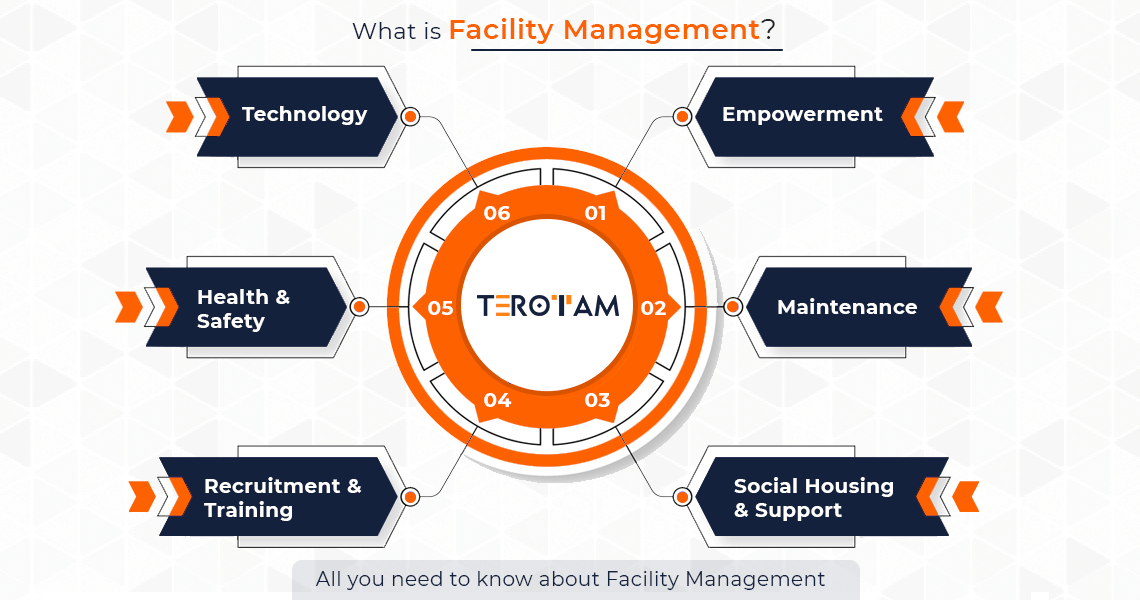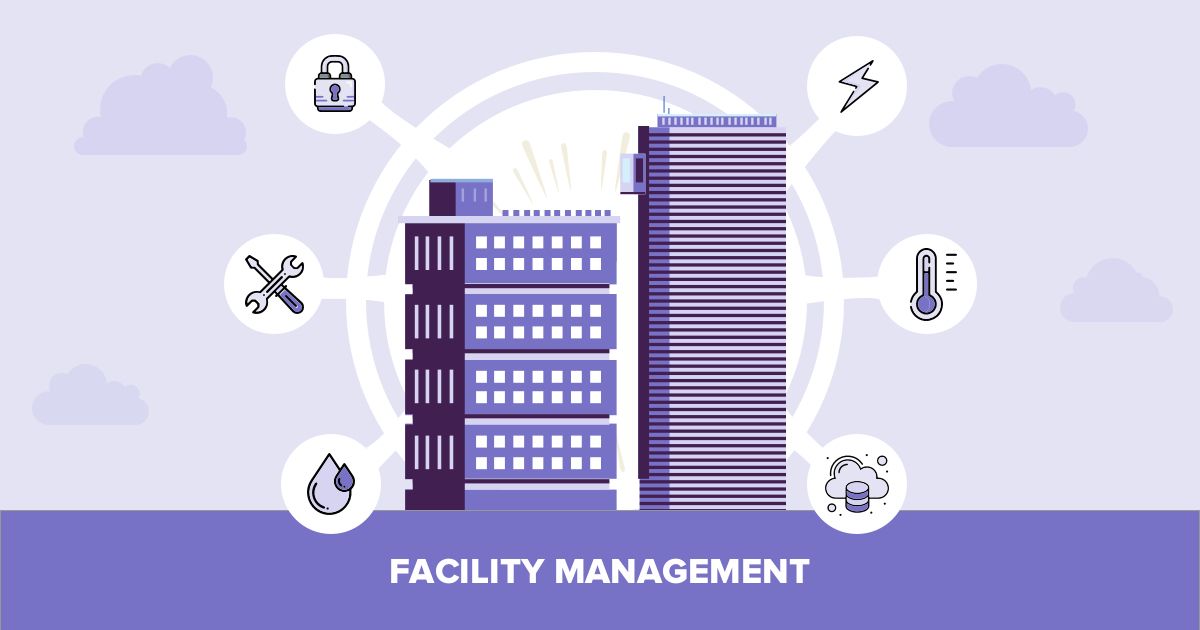Facility Management-- Streamlined Workflow and Expense Cost Savings
Trick Patterns Forming the Future of Facility Administration in 2024
As we expect 2024, the landscape of facility administration is poised for significant transformation, driven by a number of vital patterns. The assimilation of wise structure modern technologies and a shift towards data-driven decision-making assurance to enhance operational effectiveness while focusing on sustainability in technique. The development of hybrid work models is reshaping office atmospheres, requiring cutting-edge style options that provide to advancing worker requirements. Amidst these modifications, the concentrate on passenger health proceeds to get traction, emphasizing the relevance of a healthy workplace. How these fads will show up in technique stays a critical inquiry for sector specialists.
Smart Structure Technologies

Smart structure technologies encompass a large variety of systems, consisting of smart lights, heating and cooling controls, and safety systems. By incorporating these systems, center supervisors can monitor and adjust parameters in real-time, leading to significant reductions in energy waste and operational expenses. Wise sensors can find tenancy levels and readjust lighting and temperature level as necessary, making certain that power is only used when required.
Furthermore, these technologies help with enhanced information collection, enabling organizations to track usage patterns and identify possibilities for more enhancements. The implementation of smart structure innovations not only adds to sustainability objectives yet likewise creates much healthier workplace that can improve worker productivity and complete satisfaction.
As we relocate into 2024, the fostering of wise building modern technologies will likely speed up, reflecting a more comprehensive change in the direction of more smart, responsive, and sustainable center administration practices.
Data-Driven Choice Making
Progressively, organizations are leveraging data-driven decision making to enhance center administration practices. By using data analytics, center managers can acquire actionable understandings that substantially improve functional performance and resource allocation. The combination of advanced modern technologies, such as IoT sensors and real-time tracking systems, makes it possible for the collection of large quantities of data on structure performance, occupancy prices, and power usage.
This wide range of information enables center managers to determine fads, predict maintenance demands, and proactively address concerns before they intensify. Predictive analytics can forecast devices failings, decreasing downtime and repair service prices. Additionally, data visualization devices assist in better communication among stakeholders, making certain that informed decisions are made collaboratively.
Additionally, data-driven techniques enhance calculated preparation by making it possible for center supervisors to examine the efficiency of current practices and make educated choices relating to investments in modern technology or infrastructure. As organizations progressively prioritize operational quality, data-driven decision making is poised to become a cornerstone of successful center monitoring approaches in 2024 and past. Inevitably, the capacity to utilize information efficiently will equip organizations to create more efficient, productive, and resilient facilities.
Sustainability and Environment-friendly Practices
The focus on data-driven choice making naturally straightens with the growing concentrate on sustainability and green techniques within center administration. As organizations progressively prioritize ecological duty, center managers are leveraging analytics to optimize resource use, lower waste, and lessen carbon footprints. This tactical approach enables the combination of energy-efficient systems, such as LED lighting, clever cooling and heating controls, and renewable resource resources right into facility operations.
Moreover, the execution of sustainable techniques expands beyond energy intake. Facility supervisors are taking on eco-friendly products and promoting reusing campaigns to develop a circular economic situation within their facilities. This not only boosts the environmental account of the organization but additionally promotes a culture of sustainability among employees.
Conformity with ecological policies is an additional critical facet driving the adoption of eco-friendly practices. By using information analytics, facility supervisors can monitor compliance metrics and recognize areas for enhancement, making certain adherence to international and regional sustainability criteria.
Hybrid Job Models
A substantial change towards hybrid job models is improving the landscape of center management in 2024. This paradigm incorporates in-office and remote work, necessitating a reevaluation of space usage, source appropriation, and employee interaction methods. Organizations are increasingly acknowledging the value of adaptable work spaces that satisfy varied demands and preferences.
Facility managers need to adapt by executing functional office layouts that support joint efforts while offering locations for focused job. This includes the assimilation of technology to promote smooth communication and partnership amongst remote and in-office staff members. Smart building remedies, furnished with sensors and analytics, permit for real-time monitoring of room use, allowing organizations to enhance their settings efficiently.
Additionally, crossbreed job versions stress the demand for efficient facility administration that focuses on worker experience. In essence, the hybrid work model is reinventing center monitoring, urging a positive technique my website to satisfy the developing demands of the workforce.
Enhanced Occupant Health
As companies accept hybrid job designs, an enhanced emphasis on resident Check Out Your URL wellness is coming to be essential to facility management approaches. Facility Management. This change acknowledges that a healthy and satisfied workforce directly influences efficiency and retention rates. Facility managers are currently focusing on atmospheres that promote psychological and physical health, incorporating aspects such as natural lights, biophilic style, and available wellness sources

Innovation plays a critical duty in this advancement. Smart building systems can monitor environmental aspects and readjust setups in real-time, making certain ideal convenience degrees - Facility Management. Furthermore, feedback mechanisms, such as occupancy sensing units and staff member studies, allow facility supervisors to continually improve wellness campaigns based upon passenger requirements.

Verdict
In 2024, the future of facility monitoring will be significantly affected by the integration of wise building technologies and data-driven decision-making, promoting improved operational performance. Sustainability initiatives will certainly focus on eco-friendly methods, while the emergence of hybrid job designs will certainly require adaptable workplace layouts. Moreover, an increased focus on occupant wellness via innovative a/c systems and biophilic style will certainly add to much healthier job settings. These patterns collectively underscore the evolving landscape of center monitoring in reaction to modern challenges and possibilities.
Facility supervisors are advertising and embracing environmentally friendly products reusing efforts click for source to produce a circular economic climate within their facilities.A substantial change in the direction of crossbreed job versions is improving the landscape of center management in 2024.Additionally, hybrid job models highlight the requirement for efficient facility monitoring that prioritizes worker experience.As companies embrace hybrid job versions, an increased emphasis on passenger health is ending up being important to facility management techniques.In 2024, the future of facility management will be substantially influenced by the combination of clever building modern technologies and data-driven decision-making, fostering improved functional effectiveness.